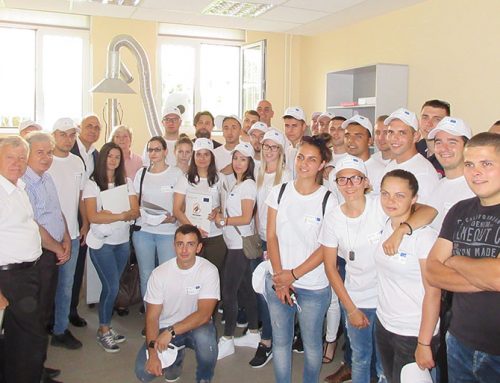The concept of consumer protection as a right for every citizen is still not yet fully embedded in Serbian society. Several steps have been taken to change the situation in the last decade, most notably in 2005, when Serbia adopted its first consumer protection law. However, a meaningful legal infrastructure for consumer protection was only effectively put in place in the country in 2010, when a new Law on Consumer Protection was adopted.
The 2005 consumer protection law introduced consumer rights to Serbians, but failed to grant them the same rights that European Union citizens enjoy and was only patchily implemented. The Law on Consumer Protection, however, was harmonised with European standards in 15 key consumer protection policy areas. Through a 3-year EU-funded project between 2007 and 2010, EU experts played a major role in the drafting of the new Law.
The Law gives Serbian consumers enforceable rights, but it is generally considered that Serbia still has some way to go in actually implementing and enforcing the legislation. Moreover, although home-grown consumer protection organisations are on the rise, this sector remains relatively weak. That is why in August 2011, the EU decided to continue its efforts in supporting the establishment of an efficient consumer protection system in Serbia by launching a new 30-month project. Its primary aim is to enhance coordination among state institutions and consumer organisations and to update the present legal framework so that it dovetails with laws in specific consumer protection areas such as financial services, services of general economic interest, product safety and market surveillance is ensured.

The right to redress
Since its launch, this project has held open days for consumer organisations to discuss the latest policy developments, organised study visits in the EU for Serbian consumer organisation representatives to learn more about consumer protection policy, and held seminars for Serbian officials on such subjects as EU consumer protection legislation. One of its most popular events has been its Consumer Rights Fair that it has now run twice in Belgrade, in spring 2012 and 2013. Says Vera Vida, President of the Serbian Consumers Centre: “Such an event had never been organised in Serbia before and gathered representatives of almost all consumer rights protectors in one place. It was an excellent opportunity to provide information and advice on consumer issues to visitors.”
The €2.5 million project has also been instrumental in establishing a National Council for Consumer Protection in accordance with the Law on Consumer Protection and submitted proposals to the Law to strengthen its provisions regarding the system of consumer protection. The project is also working on making sure that Serbian consumers are equipped with the means and places to voice their complaints and to seek for redress, by increasing the number of out-of-court schemes for the settlement of consumer disputes throughout the country.
More information
Project: Strengthening Consumer Protection in Serbia
Implemented by: European Profiles – www.europeanprofiles.gr (Consortium)
See also: Ministry of Foreign and Internal Trade and Telecommunications – Consumer Protection Department, Republic of Serbia – zastitapotrosaca.gov.rs



